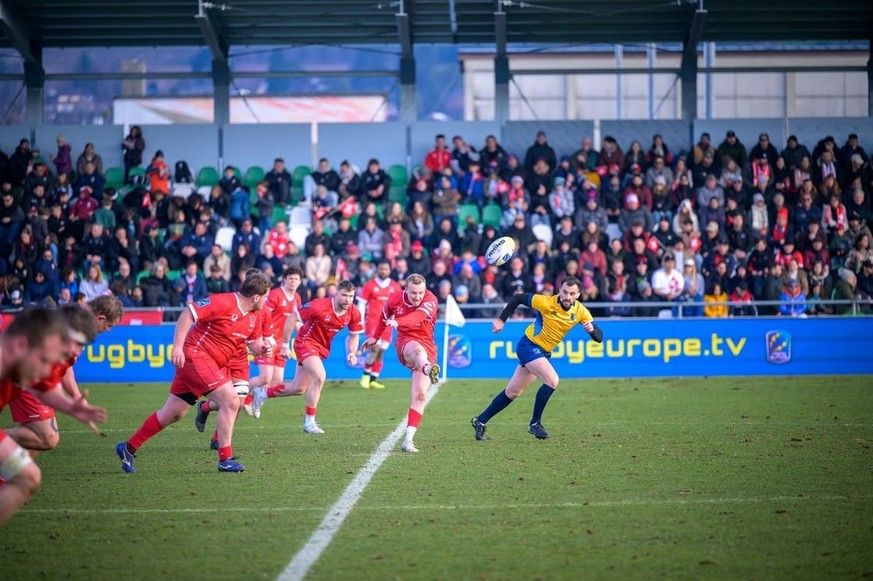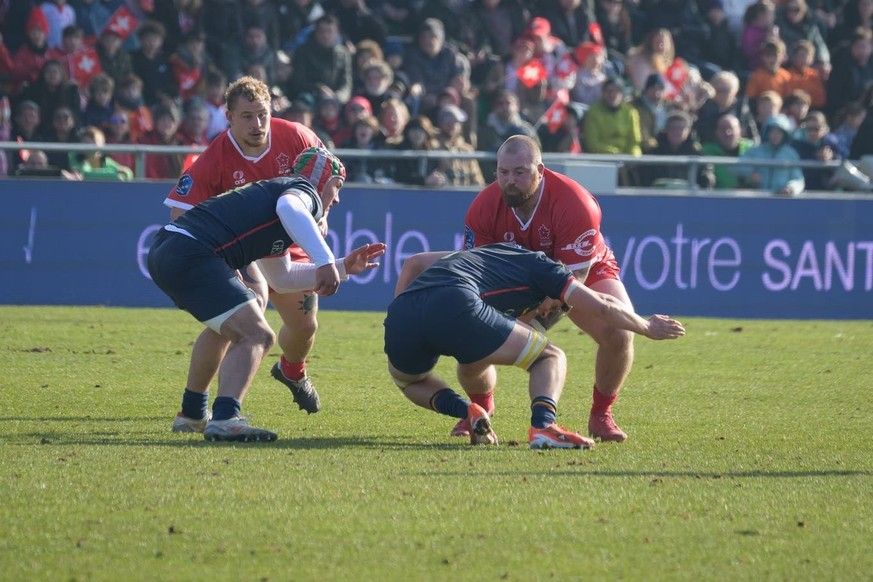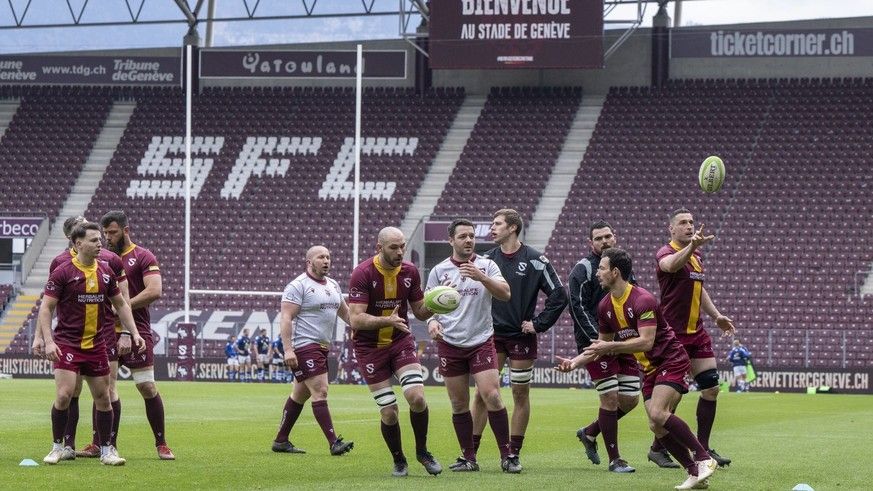
Swiss rugby players are now evolving in Europe Championship. image: Keystone
To compete with the continent’s cadors, Swiss rugby players take advantage of an international regulation. And a Geneva club plays an important role there.
14.04.2025, 05:3014.04.2025, 05:30
Emil Rohrbach / CH Media
The Swiss male rugby team has a very complicated start to the year in terms of results. But it is completely normal: it has just joined Europe Championship for the first time, the continental second division, which acts as “Six nations B tournament”.
It rubs into formidable training with professional workforce Like Georgia, Spain or Romania. The nati has only two pros (who play in the French second division).

South African Cameron Holenstein (right) is one of the Nati’s “mercenaries”.image: ch media
After four setbacks in as many matches (including a scathing 0-110 in Georgia), the Helvetians won their first duel in Germany (20-17) in mid-March, which allows them not to occupy the last place (they are seventh out of eight, the Germans closing the walk).
During this victory, Switzerland had no less than thirteen foreigners on the match sheet, and nine in the fifteen base. It is a widespread phenomenon in international professional rugby.
Many South Africans and New Zealanders evolve for example with Scotland, Wales, Ireland, France or Italy. With only three “mercenaries”, England is the selection participating in the Six Nations Tournament which uses the fewest foreigners.
And decompartmentalization wanted by World Rugby
To compete, the Swiss team must therefore also call on these external recruits. Because his opponents in Europe Championship do the same: for example, many South Africans, who have not been able to make the jump among the pros, play for the Netherlands. The workforce of Romania also has many foreigners (most of them come from the islands of Polynesia).

The Irishman Bundee Aki (with the ball) and the French Uini Atonio (n ° 3), opposed on March 8, are both original New Zealand.image: ap
This decompartmentalization of nationalities – opposed to what is done in most sports, such as football or ice hockey for example – is desired by the International Rugby Federation (World Rugby), explains Sébastien Dupoux, technical director of the Swiss Federation:
“World Rugby considers that belonging to a nation is more complex than what is registered on a passport”
The global body wants to allow players to evolve for a country as soon as they have a link-even small-with it.
A rugby player must fill at least one of these criteria To wear the jersey of a selection:
- Have the passport of this country
- Be born in this country
- Have a parent with nationality
- Have a grandparent with nationality
- Having played in the league of this country for five consecutive years
- Having lived in this country for ten years in total
Les cracks servetiens
The Swiss Federation works in close collaboration with the Servette Rugby Club. This Geneva club does not play in the national championship, but in France. He started in the lowest division and has been promoted nine times since 2014. Currently, he has been playing in National 2, the fourth French division.
Thus, Switzerland may soon import good South Africans and New Zealand via Servette. The higher the team, the larger the chances. But it is a double -edged sword, warns Sébastien Dupoux:
“On the one hand, the most talented players can play a high level rugby week after week, but on the other, the level of our own championship is suffering.”
With this situation, the development of overseas rugby is also neglected. “We cannot expect a German -speaking Switzerland that he will train in Geneva.”

The Servette Rugby Club represents a great opportunity for the Swiss team. image: keystone
But the Federation offers, within the framework of an academy in Zurich, high -level training for the best young players, provided by experienced coaches. They reduce the level gap within the Swiss team and increase the value of the national championship.
It remains to be seen whether this approach will be enough, in the short term, to maintain the nati in the second European division. Perhaps waiting for New Zealand, South Africans or Tongiens Cracks from Servette.
Translation and adaptation in French: Yoann Graber
More articles on sport
Show all articles










